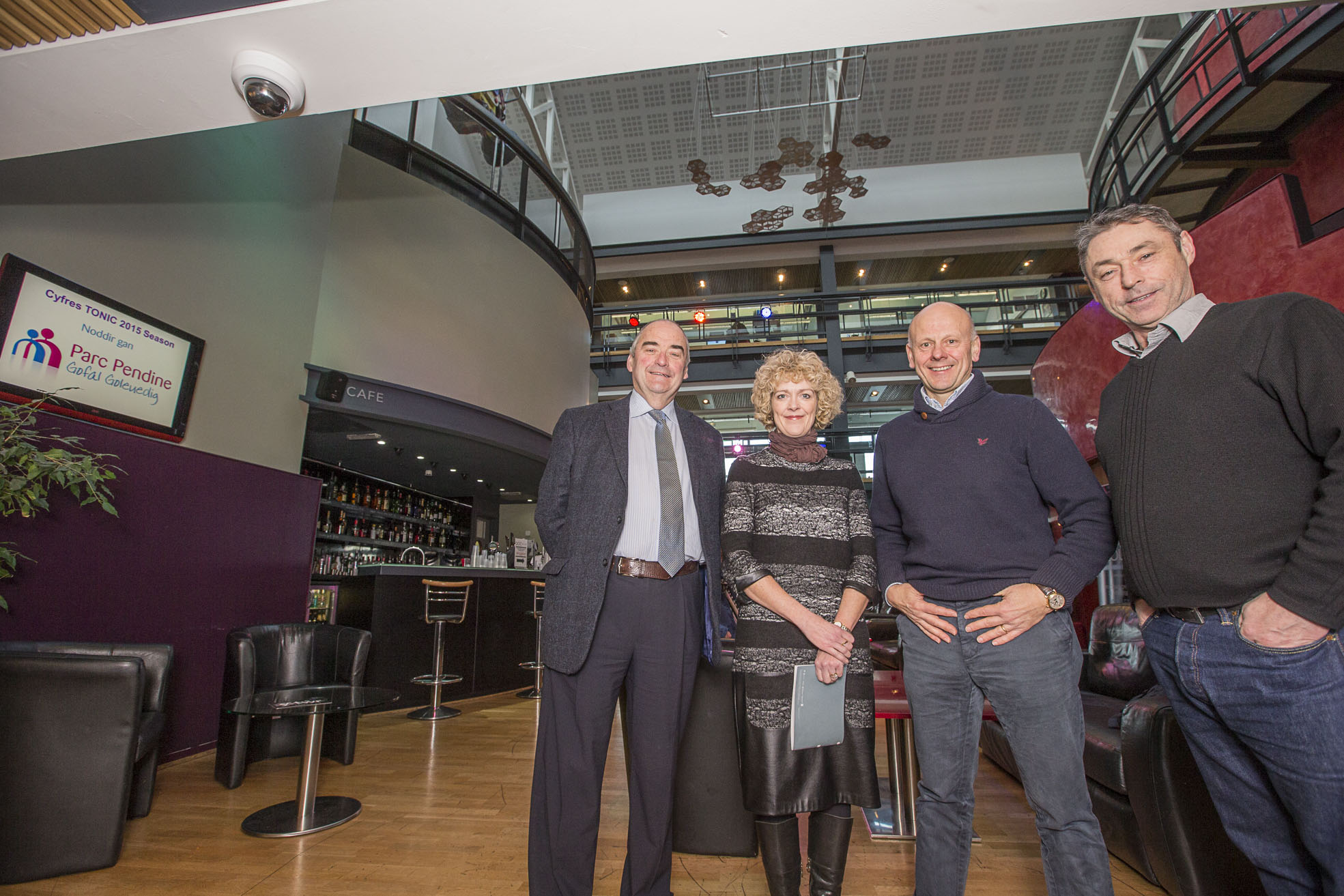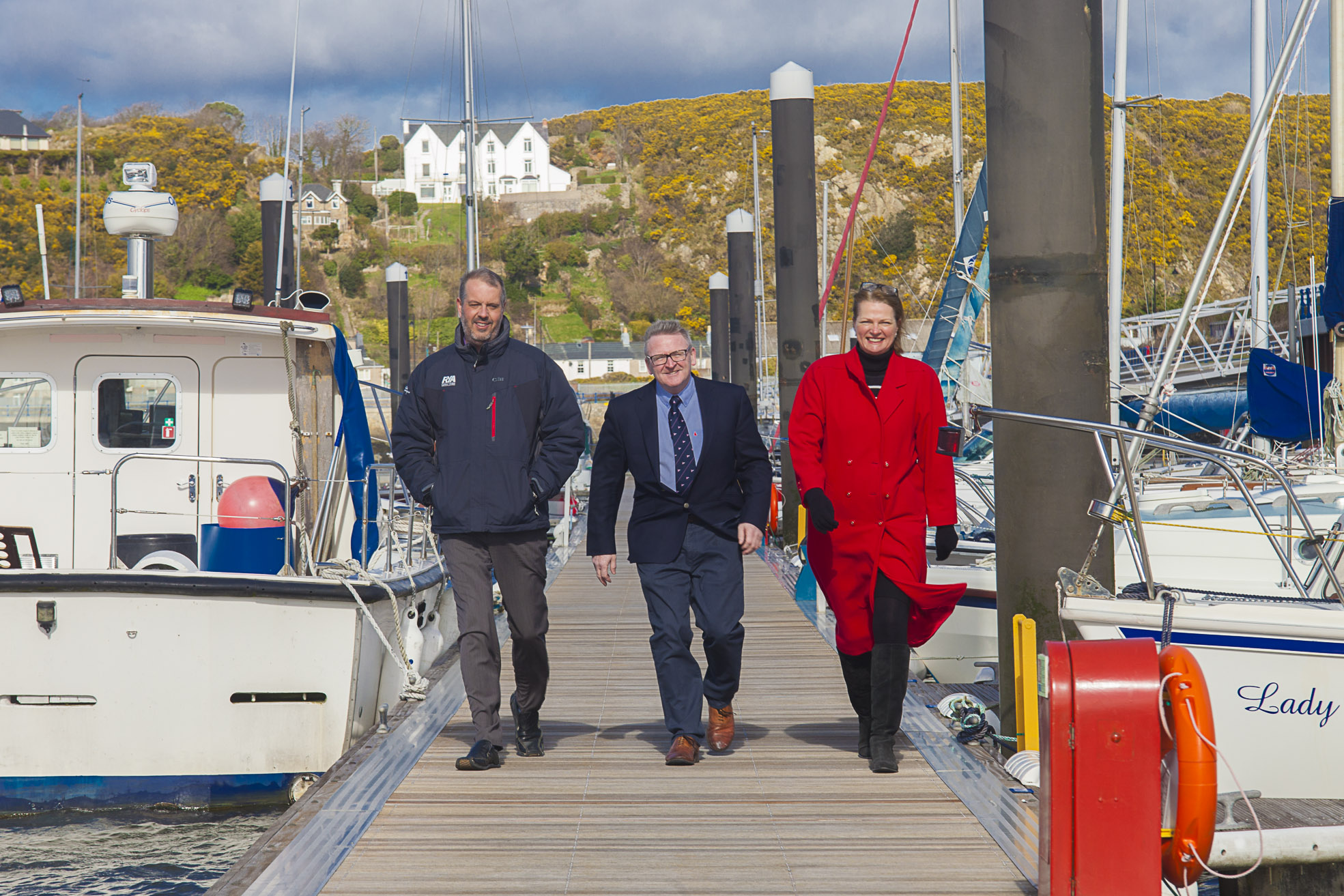Wrexham’s new super-prison has already pumped £34 million into the local economy – and there’s a lot more to come.
That was the message from Russ Trent, governor of HMP Berwyn, when he was one of the keynote speakers at the latest meeting of the influential Wrexham Business Professionals (WBP).
The group is made up of successful businesses and highly skilled professional firms of solicitors, accountants and other business professionals working together to raise the profile of enterprise and expertise that exists in the region and beyond.
Also speaking at the meeting at the Rendezvous restaurant at Coleg Cambria in Wrexham was the former North Wales Police and Crime Commissioner, Winston Roddick CB QC, who stepped down earlier this year after making history as the first person to do the job.
The theme of the meeting in was powering regional prosperity and it was chaired by Coleg Cambria’s chief executive, David Jones OBE.
Wrexham Business Professionals were among those who campaigned in favour of the new prison as a “once-in-a-generation” £250 million investment that will supercharge the economy of North East Wales.
HMP Berwyn, which is due to start taking its first men from next February, is the largest in the UK and the first public sector prison to be built in over 30 years.
It will see over 1,000 staff supervising 2,016 category C male prisoners.
Being built at a cost of £212 million on the former Firestone factory site on Wrexham Industrial Estate, the new jail will have three cell blocks each housing 700 men along with 12 workshops, an education block, health centre, pharmacy, gym, sports hall and football pitch.
According to Mr Trent, who is a former Royal Marines officer and has already been in charge of a number of successful prisons and young offenders institutions across Britain, the prison had already generated £34.4 million – considerably more than its initial estimate of £30 million – in local spending.
He said: “That figure is the latest estimate but in the six months remaining before we are due to open next February it is likely to be considerably more.
“The prison is not just about employment but about buying in goods and services from the local area. There is also the spending power of the staff to be taken into account once the prison opens.”
Mr Trent told WBP members that a huge 69 per cent of the staff employed during the prison’s building stage had been recruited from the local area – again a higher figure than the 50 per cent originally forecast.
Construction of HMP Berwyn had so far also provided 1,796 days of work placements and created 53 apprenticeships.
And recruitment of over 1,000 staff needed to fill a wide variety of roles was continuing.
Other benefits to the area, he said, have included Wrexham Borough Council landing the contract to supply library services, the Betsi Cadwallader University Health Board being appointed to deliver the prison’s in-house health service, with more contracts for other services to be announced soon.
The governor said: “The new prison has a central place in the community, bringing in jobs and opportunities for the region and will embrace the North Wales.”
Mr Trent outlined his vision for the prison which he said fulfilled his personal “drive for justice and the need to treat people with respect”.
“One of the main aims will be to bring men closer to home. I recently met a Wrexham man who had been in prison in Dorset for many many years without a visit from his family and I hope he’ll be one of the first at HMP Berwyn,” he said.
“It will be a rehabilitative prison providing a safe, decent and just environment where men are encouraged and assisted to prepare for a fresh start in life.
“Although it won’t be luxurious it will provide all the basic needs, such as proper food, time for sleeping and family visits, and have some amazingly good facilities.
“Its design incorporates everything we know that works.
“Lots of men coming to Berwyn will have been in custody for many years already and will need preparation for their release in terms of things like modern IT.
“There will be a focus on the importance of the Welsh language in rehabilitation.
“We also have to ensure that security is done properly, so that it is a safe place for the men, the staff and visitors.”
However, he assured that category C prisoners were “the lowest categorisation people you can have in a secure setting.”
Former police officer, QC and practising barrister Winston Roddick, who served as the first ever North Wales Police and Crime Commissioner until last May, gave WBP members a broad outline of the role, which he said was to oversee the effective policing of the region with its area of 2,500 square miles and population of almost 700,000, including two major ports and a National Park.
He said: “Before the 2011 Act of Parliament which created the role of PCCs, the bodies who oversaw policing were not visible, not elected and not accountable.
“The Act brought the most radical changes ever seen in the history of the police service and the great strength of the new system has been that its governance is local.”
Mr Roddick said that since 2011, the nature of crime itself had changed to take in cyber-crime, child sexual exploitation, human trafficking and high level terrorist threats, all of which presented a major new challenge to policing techniques.
However, he said that a recent report from his successor as PCC, Wrexham’s Arfon Jones, had shown that during his four-year term in office crime had reduced by eight per cent and victim-based crime had come down by 16 per cent, with further cuts in the number of burglary victims and the number of people killed or seriously injured on the roads.
Mr Roddick added: “All this was achieved during a time of unprecedented financial cutbacks. But it wasn’t down to me, it was down to the police and our outstanding chief constable and deputy chief constable.”
Gill Kreft, the chair of Wrexham Business Professionals, said: “We were delighted to welcome two very special people in Russ Trent and Winston Roddick to our meeting
“As a group, we campaigned long and hard to establish the prison on Wrexham Industrial Estate.
“At the time the project faced considerable opposition but we always felt the prison would bring huge commercial opportunities for the whole region.
“It is a once-in-a-generation investment that will provide long-term benefits to the economy of Wrexham and it was good to hear Russ Trent’s commitment to ensuring they will continue to radiate out to the wider area.
“The address from Winston Roddick gave us an excellent insight into the challenges and opportunities of being the police and crime commissioner and it was good to learn that, under his wise stewardship, overall crime fell, making North Wales an even safer place to live, work and do business.”










